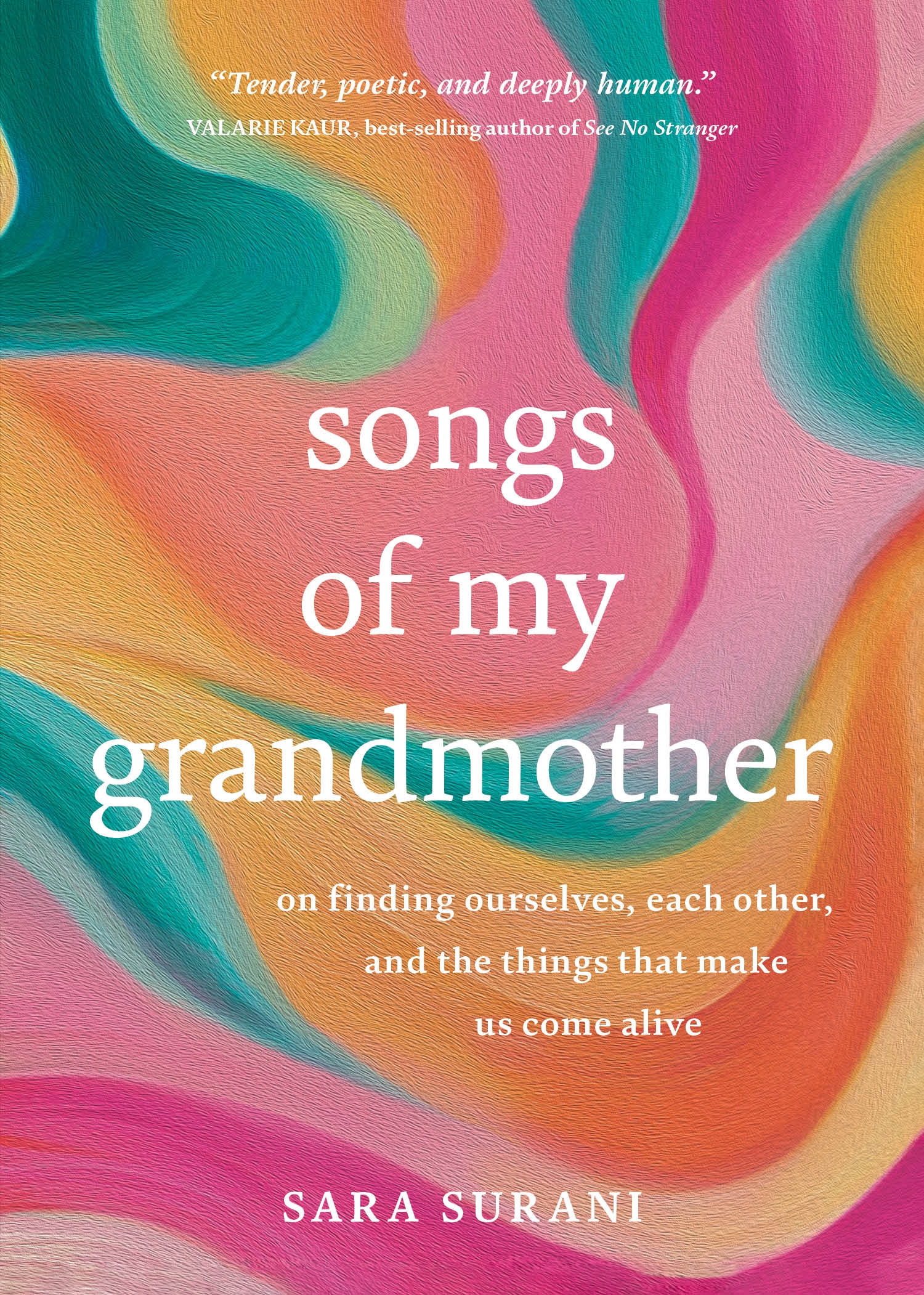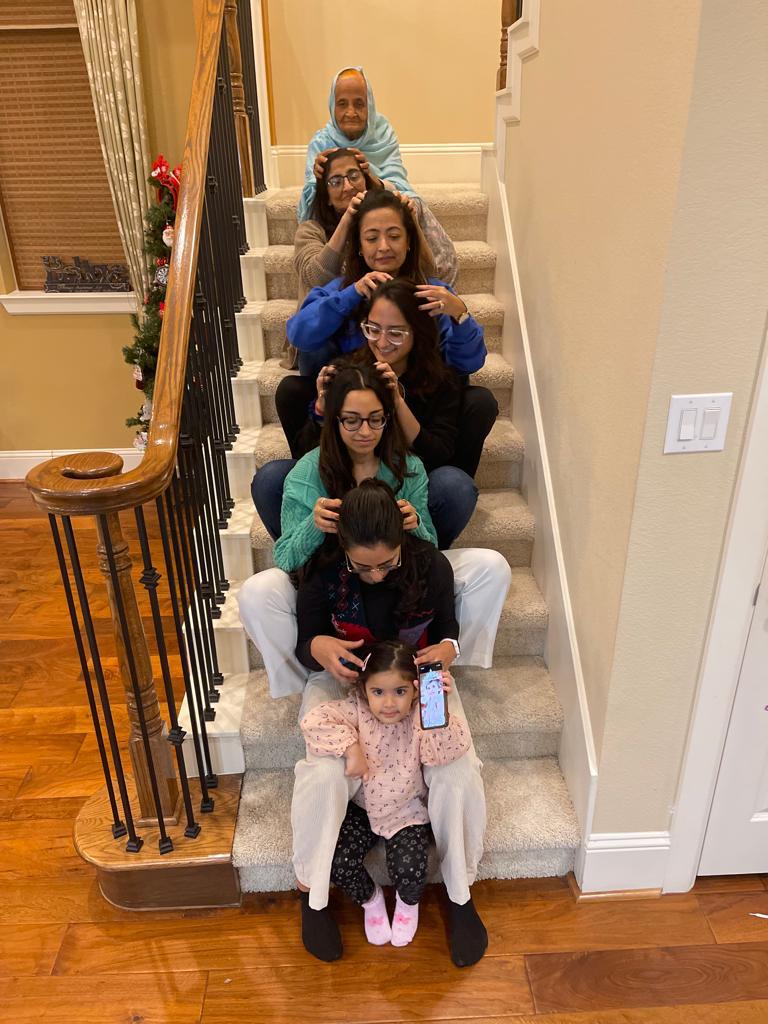In celebration of Asian American and Pacific Islander (AAPI) Heritage Month, we are proud to honor Sara Surani—an artist, researcher, and activist. I had the privilege of meeting Sara years ago through a project in the Peruvian Amazon that empowered adolescent mothers through digital storytelling and poetry. She continues to inspire those who believe in the power of stories and words to drive gender equity, health advocacy, and education through both her writing and her co-founded organizations, Nayaraq Stories and She is the Universe.

As the daughter of immigrants and a Texas native, Sara reflects deeply on her heritage and sense of identity as a South Asian woman living in the United States. In her book Songs of My Grandmother: On Finding Ourselves, Each Other, and the Things that Make Us Come Alive, she writes, “My song can’t be sung alone, for I am a vessel for the women who have come before me and the young girls who will become women long after I’m gone.” Her journey—from fishing towns in East Africa to remote communities in the Amazon jungle—has been shaped by a unique upbringing lived between two worlds and sustained by a calling to uplift the voices of women and girls across generations and cultures.

"I was six years old, sitting between my nani’s legs, as she massaged coconut oil into my hair and plaited it into braids for the first time. It was in these moments when I would learn the most about my grandmother. This ritual isn’t just common, it’s sacred. It is a whole love language. This photo is of the women in my family - so much of the inspiration behind Songs of My Grandmother. We are massaging each other’s hair with coconut oil, sitting together in one of my favorite spaces for storytelling: the staircase."
Her poem My Song captures this truth with fierce vulnerability. Through rich imagery and intergenerational reflection, she tells a story of migration, belonging, and the complex beauty of holding space between multiple identities. As an Asian American myself, I connected deeply with her words and experiences. What better way to celebrate AAPI Heritage Month than by honoring our stories and shared histories—as women, as immigrants, and as members of the Asian diaspora.
I am an implant
from the belly
of a mother
who left there
for here –
leaving behind
her green-and-white dyed roots
to find home
in red, white, and blue.
But green is not an easy color to forget.
Instead, she spread her legs wide
between two continents
with a dream
that the daughter
who would come to the world
from between them
would be able to sink her roots deep
into the fertile ground
beneath her.
A dream that her green and white roots
would eventually bloom
into red, white, and blue fruits
to feed the dreams of ancestors
who could not dream as she can.
A dream that would stand tall
in both places
and never have to bend down
or kneel
or spread her legs
for anyone
or any place
or any space
begging for breadcrumbs
or belonging.
But Mama didn’t realize
that between our two lands
is not more land,
but water
and air.
And on cannot stand on water and air.
So instead of a brave oak or a sweet mango tree,
I am an air plant, adjusting to roots untethered and bare –
neither here, nor there,
not connected to the land I’ve never grown up on, only visited
no connected to the land I’ve grown up on, always felt like a visitor in
yet connected to both through hyphenated identity
that – like the water between two lands – divides me.
Water that feeds the plants from the fields my great-grandmother tilled,
water that rises int eh corners of my grandmother’s eyes but never spills,
water that my mother brings to me at night without my even asking,
when I deep asking – what are we doing?
every time I realize
that our people are plants growing bright and blue,
begging for belonging by sharing our fruits
and serving this land
that wasn’t even theirs to begin with.
Transplants that die a little more every time they bring out their sticks and stones
when our bright colors
threaten their why
their white,
what they think is right –
they forget we too have rights.
They tell us we have the right to leave,
they don’t understand that it’s not that were from neither here nor there,
but that we are air plants
with deep roots
in the air
between everywhere –
both here and there.
Growing,
growing,
growing.
We are an explanation with no words needed
for what happens when two people
who haven’t met yet
give up their whole lives
to re-plant in the same soil
with a different name.
nourishing themselves with memories
that feel like water,
and “maybes” and “hopefullys”
that feel like just the right amount of sunlight
so that maybe,
hopefully,
that child that is not even in her belly yet
will be able to dream a dream
that her ancestors could not dream before her.


©2024. Made with (❤︎) in Yachayninchik